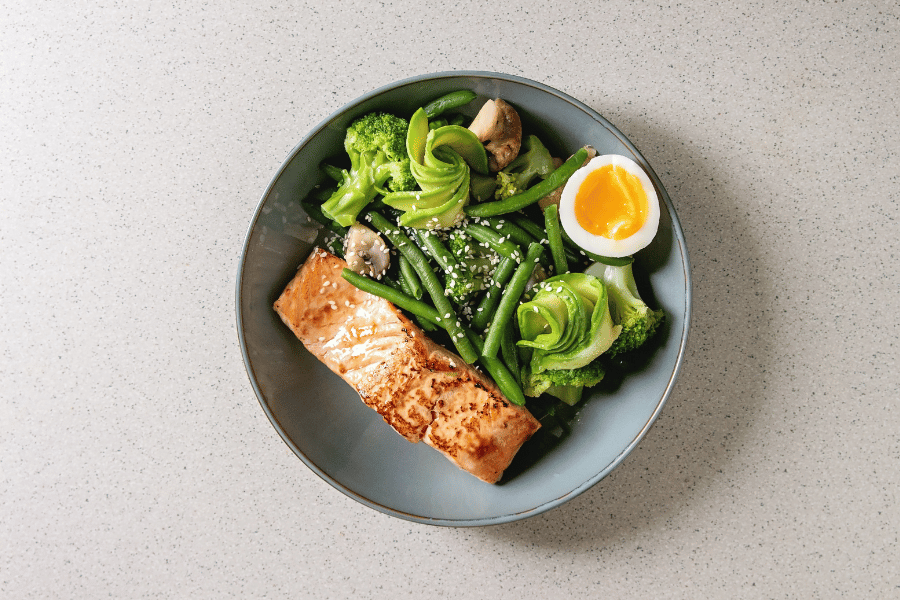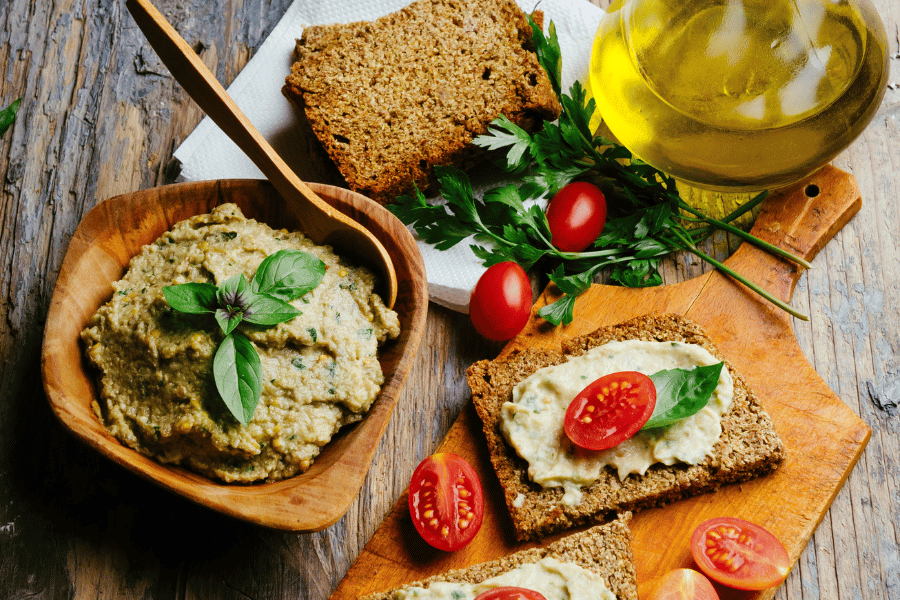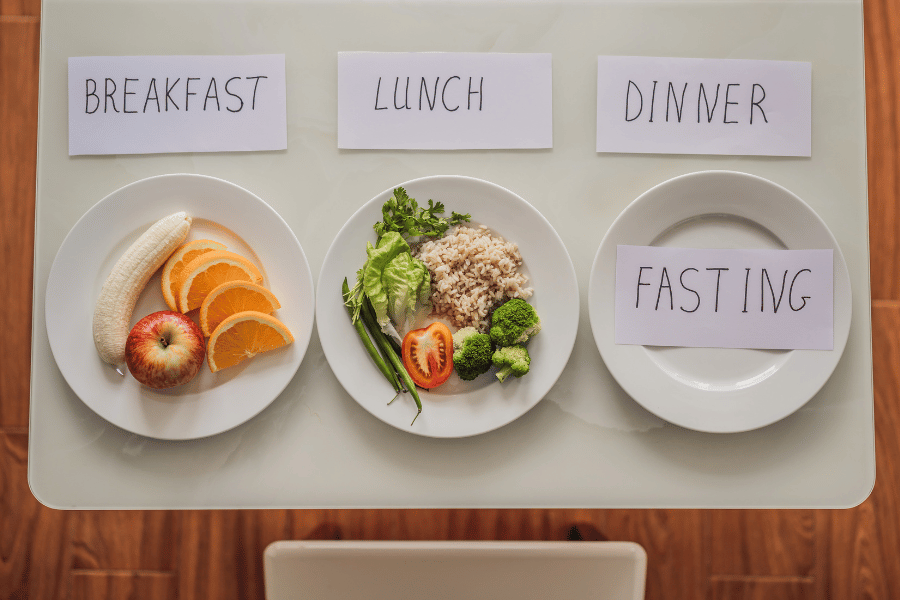Understanding the unique nutritional needs of women is crucial when considering weight loss strategies. Women’s bodies differ significantly from men’s in terms of hormonal balance and metabolic needs, impacting how they lose weight. It’s not just about cutting calories but ensuring those calories come from the right sources to support overall health and hormonal balance.
Best Diet to Lose Weight Fast?The importance of a balanced approach to weight loss cannot be overstated. A diet that’s too restrictive not only is difficult to maintain but also can lead to nutritional deficiencies and other health issues. The key is finding a diet that promotes weight loss while still providing the necessary nutrients to keep your body functioning optimally. This includes a mix of lean proteins, healthy fats, and complex carbohydrates, along with essential vitamins and minerals.
In this section, the content introduces the topic by emphasizing the unique dietary needs of women and the importance of a balanced diet for effective weight loss. The focus on nutritional needs and a holistic approach aligns well with the title and sets the stage for discussing specific diets and strategies in the following sections.

best diet to lose weight fast
Key Principles of the Best Diets for Rapid Weight Loss
When it comes to rapid weight loss for women, there are several key principles to consider for a successful diet plan. Let’s delve into these principles:
- Calorie Control and Portion Management: Effective weight loss often comes down to a simple equation – consuming fewer calories than you burn. However, this doesn’t mean drastically reducing your calorie intake, which can be counterproductive. Instead, focusing on portion control helps manage calorie intake without compromising nutritional needs. It’s not just about eating less but eating right.
- Balancing Macronutrients: Proteins, Carbs, and Fats: A well-rounded diet should include a balance of macronutrients. Proteins are essential for muscle repair and growth, especially important if you’re including exercise in your weight loss plan. Carbohydrates, particularly complex carbs like whole grains, provide the necessary energy. Healthy fats are equally crucial for hormonal balance and to keep you satiated. The right balance of these macronutrients can accelerate weight loss while maintaining good health.
- Importance of Hydration and Fiber: Hydration plays a pivotal role in weight loss. Water not only helps in metabolism but also aids in digestion and can help control hunger pangs. Similarly, dietary fiber found in fruits, vegetables, and whole grains, is important for maintaining a healthy digestive system and can keep you feeling fuller for longer, reducing the likelihood of overeating.
These principles form the foundation of effective and sustainable weight loss diets. By focusing on these aspects, women can create a diet plan that not only helps in losing weight fast but also supports overall health.

best diet to lose weight fast
Top Diets That Promote Fast Weight Loss for Women
Best Diet to Lose Weight Fast?Several diets have gained popularity for their effectiveness in promoting rapid weight loss in women. Let’s explore some of these diets:
- Ketogenic Diet: A low-carb, high-fat approach: The Ketogenic, or ‘Keto’, diet involves significantly reducing carbohydrate intake and replacing it with fat. This reduction in carbs puts your body into a metabolic state called ketosis, where fat is burned for energy instead of carbohydrates. While this diet can lead to quick weight loss, it’s important to approach it with caution and consider any potential health implications, especially for women.
- Mediterranean Diet: Focusing on whole foods and healthy fats: The Mediterranean diet emphasizes consuming primarily plant-based foods, such as fruits and vegetables, whole grains, legumes, and nuts. It recommends replacing butter with healthy fats such as olive oil, using herbs and spices instead of salt to flavor foods, and limiting red meat. This diet is not only beneficial for weight loss but also supports overall health and is considered sustainable and enjoyable.
- Intermittent Fasting: The benefits of timed eating patterns: Intermittent fasting involves cycling between periods of eating and fasting. It doesn’t specify which foods to eat but rather when you should eat them. Common methods include the 16/8 method (fasting for 16 hours and eating during an 8-hour window) and the 5:2 approach (eating normally for 5 days of the week and reducing calorie intake for the other 2 days). This approach can lead to a reduction in calorie intake and consequent weight loss.
Each of these diets has its own set of benefits and challenges. It’s important to choose a diet that aligns with your lifestyle, preferences, and health needs. Consulting with a healthcare provider or a nutritionist can provide personalized advice and ensure that any chosen diet is both safe and effective.
Exercise and Its Role in Weight Loss
Combining a well-planned diet with an effective exercise regimen is key to successful weight loss, especially for women. Let’s explore how exercise complements diet in the journey of shedding pounds:
- Combining Diet with Exercise for Effective Weight Loss: While diet plays a crucial role in weight loss, exercise is equally important. Exercise helps to burn calories, boost metabolism, and build muscle mass. Increased muscle mass enhances metabolic rate, meaning your body burns more calories even at rest. Additionally, exercise can improve mood and energy levels, making it easier to stick to a diet plan.
- Best Types of Exercises for Women Targeting Weight Loss: A combination of cardiovascular exercises, strength training, and flexibility workouts is most effective. Cardio exercises like running, cycling, or swimming burn a significant number of calories and improve heart health. Strength training, such as weight lifting or bodyweight exercises, builds muscle, which can aid in weight loss. Flexibility exercises, such as yoga or Pilates, improve muscle tone and prevent injuries. It’s important for women to find exercises they enjoy, as this increases the likelihood of maintaining a regular exercise routine.
It’s also worth noting that while exercise is beneficial, it should be approached sensibly. Over-exercising can lead to injury and burnout, and it’s vital to allow the body time to rest and recover.
A balanced approach to diet and exercise is the most effective and sustainable way to lose weight. Exercise not only helps in burning calories but also improves overall physical and mental well-being, complementing dietary efforts in the weight loss journey.

best diet to lose weight fast
Overcoming Common Challenges
Weight loss, especially for women, can be filled with challenges. Understanding and preparing for these obstacles can make the journey smoother and more successful.
- Dealing with Plateaus in Weight Loss: It’s common to experience a plateau in your weight loss journey, where you stop losing weight despite continuing with your diet and exercise routine. This can be frustrating, but it’s important to stay motivated. Often, overcoming a plateau may involve tweaking your diet or changing your workout routine. Remember, plateaus are a normal part of the weight loss process.
- How to Stay Motivated and Track Progress: Keeping up motivation can be tough, especially when results don’t appear quickly. Setting realistic goals and tracking your progress can be helpful. Celebrate small victories, like choosing a healthy meal or completing a workout, not just the number on the scale. Keep a journal or use apps to track your food intake and exercise. Seeing your progress in writing can be a powerful motivator. Also, consider joining a community or finding a workout buddy for support and encouragement.
Weight loss is a journey, not a race. It involves changing lifestyle habits, not just short-term diets or workout fads. Patience, persistence, and self-compassion are key.
Maintaining Weight Loss: Tips for Long-Term Success
Maintaining weight loss is often more challenging than losing weight. Here are strategies to help ensure long-term success:
- Strategies for Sustainable Eating Habits: The key to maintaining weight loss is to adopt sustainable eating habits. This means choosing a diet that is not overly restrictive and can be maintained in the long run. Focus on eating whole foods, such as fruits, vegetables, lean proteins, and whole grains. Avoid fad diets or quick fixes – they’re not sustainable and can lead to yo-yo dieting.
- The Role of Lifestyle Changes in Maintaining Weight Loss: Weight loss isn’t just about diet and exercise; it’s about making overall lifestyle changes. This includes getting enough sleep, managing stress, and staying active throughout the day, not just during designated exercise times. Integrating physical activity into your daily routine, like walking more or taking up a hobby that keeps you active, can be more effective than periodic intense workouts.
Weight maintenance is a continuous and evolving process. It’s about creating a balanced lifestyle that supports your physical, mental, and emotional health.
FAQ Section: “Finding the Right Balance: Your Questions Answered on Fast Weight Loss Diets”
1. What makes the best diet for rapid weight loss in women? The best diet for rapid weight loss in women balances calorie reduction with nutritional needs. It should include a mix of lean proteins, healthy fats, and complex carbohydrates. Individual factors like age, health status, and lifestyle should also be considered. A personalized approach is often most effective.
2. How can I maintain my weight loss over the long term? Long-term weight maintenance is about adopting a lifestyle that supports healthy eating and regular physical activity. Avoid extreme diets or exercise routines. Instead, focus on making gradual changes that you can maintain, such as eating more whole foods and staying active daily.
3. Are there any risks associated with fast weight loss diets? Rapid weight loss diets can pose risks if they’re too restrictive or don’t provide balanced nutrition. Potential issues include nutrient deficiencies, loss of muscle mass, and metabolic slowdown. It’s important to approach weight loss in a balanced manner and consult healthcare professionals when necessary.
4. How does exercise contribute to my weight loss goals? Exercise aids weight loss by burning calories and building muscle, which improves metabolic rate. It also has numerous health benefits beyond weight loss, including improved mood, stronger bones, and reduced risk of chronic diseases.
5. What are some tips to overcome weight loss plateaus? To overcome plateaus, try mixing up your routine. Alter your diet slightly, try different types of exercises, or adjust your calorie intake. Remember, plateaus are a normal part of the weight loss journey.